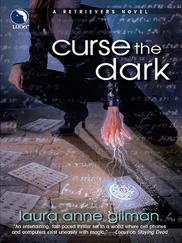“Raindrops were falling from his hair too and running into his eyes, his mouth and his ears, as they were into mine. So I asked him: A lot of rain, isn’t it? An insignificant question, just to find a subject, and he answered me: Yeah, except maybe for frogs in a pond. From there we could converse more seriously because his words and mine had already been intertwined, and he confessed that he had come from the city of Popayán to try out his luck. Popayán? Where in the hell is that? I asked him, again just for the pleasure of chatting, or the need to find an accomplice, because I already knew more or less where the city of Popayán was.”
“It’s on the other side of the country,” he answered.
“That’s not so bad, there are several here who come from the other side of the planet. I’ve seen Armenians, Canadians, Jews, Greeks…”
“Well, I still had to walk three months to get here.”
“ ‘Okay, Payanés’—I called him that because that’s what they call people who are from Popayán, and I kept calling him Payanés through the many good days that we were close friends, and even afterward—‘now that you’re here hold my place in line while I go take a leak,’ I said eagerly and in confidence, like any timid guy who wants to hide his urgent condition. In truth I had decided to talk to him because I had to go badly and didn’t want to lose my place in that line of men, winding long and nervous like a poisonous snake.”
At noon, the rain gave way to a brilliant sun that dried the clothes on their backs, then around three in the afternoon it was finally their turn to face the recruiter, a robust man with the neck and disposition of an ill-tempered young bull.
“Show me your palms!” he bellowed, and they obeyed instantly. “Those are the hands of a lady, aren’t you ashamed? Get out of here, we don’t need women!”
“Respect!” demanded Sacramento, but without much conviction, so the bull wouldn’t charge him.
“Yeah, respect,” echoed Payanés, and from that first adversity they became accomplices for all the others to come.
“I’ll kill that son of a bitch,” boasted Sacramento when the beast was no longer within earshot. “I’ll choke him with my bare hands, then we’ll see whether they’re a lady’s hands.”
“You’re not going to choke anybody, much less that giant,” said Payanés, taking his new friend over to join a group of fellow rejects as they headed out to look for work as road laborers, to wield shovels until their hands were covered with calluses and they could return to the recruiting officer stronger and better prepared.
They penetrated the dense, hungry jungles of Carare through a tunnel they barely managed to open with slashes of their machetes and that snapped shut behind them like the jaws of a beast. They walked in the dark, feeling their way and withstanding scratches, roars, venom, and harassment from slimy fauna and hairy flora whose existence Sacramento had never dreamed of even in his worst nightmares, and that Payanés pointed out and classified according to their place in the animal, mineral, or vegetable kingdom.
“This is a sarrapial, those giant burning flowers are called cámbulos, those shouts you hear are from white-faced maicero monkeys, this must be the footprint of a momano, half ape and half human, who walks upright through the jungle, wary and nearly hairless, hiding from people because he’s shy and ashamed of his nakedness.”
Sacramento tore off a leaf and it turned out to be an insect, he was about to grab a stick but it was a snake, he heard the beautiful song of a bird and it too turned out to be a snake: a singing ophidian.
“I’m never going to learn,” he said, disheartened. “Nothing here is what it seems and everything acquires the gift of transforming itself into its opposite. The only certain thing is the hungriness with which the jungle looks at you; let down your defenses for a second and you’ll get swallowed up.”
Eight days later, green, weak, and moldy from the humidity and lack of sun, their stomachs out of sorts from drinking amoebic broth and chewing corozo seeds, they found themselves on an old camino real opened by the conquistador Jiménez de Quesada along the Río Opón, upon which the Troco wanted to build a road to Campo Escondido and so was recruiting fresh blood for the work of leveling and moving earth.
They arrived around midnight and were greeted by the miracle of the river transformed into a bed of placid stars, which at the edge came away from the water and took off in flight.
“Those floating lights you see are female lightning bugs calling their mates,” said Payanés.
“Such tireless vegetation, so many creatures giving off light, so many males trying to copulate,” said Sacramento. “Nature is a very loving thing, hermano .”
They removed their shoes and lay down among the rest of the men, beneath the immense sky and with their heads firmly resting on their shoes, which are the most cherished possession in the life of a foot traveler. Despite their precaution, they went to sleep with four and awoke with three: Payanés’s two and only the right shoe belonging to Sacramento, who sat in a gully hugging his widowed shoe and began to cry. He cried from exhaustion and because he was an orphan and because of the desolation of his abandoned foot, which was condemned to the sharp edges of the rocks and to the itching from the ticks and chiggers that embedded themselves in the plants, where they lay their crops of eggs.
“Monday, Wednesday, and Friday you get the complete pair,” Payanés said consolingly, handing him a tin can of hot coffee. “Tuesday, Thursday, and Saturday I’ll have it. Two Sundays a month for you, two Sundays for me.”
“Monday, Tuesday, Wednesday, Thursday, Friday, Saturday, and Sunday,” corrected Sacramento, “the first son of a bitch who lets down his guard tonight will have to limp around, because I’m going to steal a left shoe.”
“Why would they have only stolen one?”
“It must have been some damned one-legged thief.”
“It won’t be hard to recognize him then.”
“What if the thief has all of his legs, and if someone else had stolen only one of his shoes too?”
“Then that means that a cycle has begun that not even God can end.”
Sacramento and Payanés racked their brains trying to imagine what luck could befall two men with three shoes, when toward them came an old man, ill-humored and mumbling curses.
“I’m getting out of here,” he said, chewing his words, as Sacramento studied the sturdy pair of raised-heel boots with leather straps the old man was wearing. “If you want my place you can have it. I’d rather die of hunger in my homeland than leave my bones buried in these shitty swamps. They’re plagued with bugs, look, there goes one, and there’s another. They say they bite, the filthy creatures. I’m getting out of here, yessir, before a fucking bug eats me.”
“Well, if you’re leaving, why don’t you do me the favor of leaving me your boots?” proposed Sacramento, inspired by the muses of his desperation.
Astonished, Payanés looked at him.
“What do you mean, my boots?” the old man shot back. “Do you by chance have a million pesos to give me for them?”
“I don’t have anything to give you for them, but look at my situation and you’ll understand, somebody stole my shoe, which there is a great need for around here, and since you’re going home and probably have another pair waiting for you there…”
“And how am I supposed to get home, fly? Stupid idiot. That’s just what I need, some blockhead to start asking me for presents. Maybe you think I look like baby Jesus?”
Читать дальше












